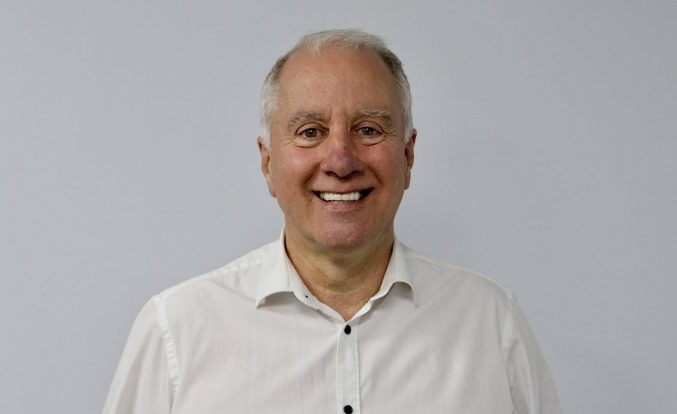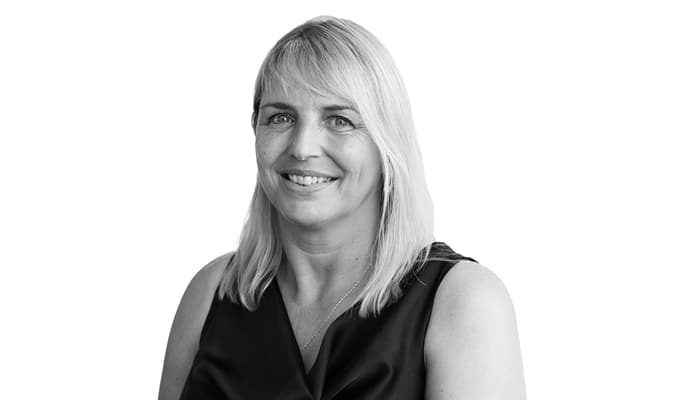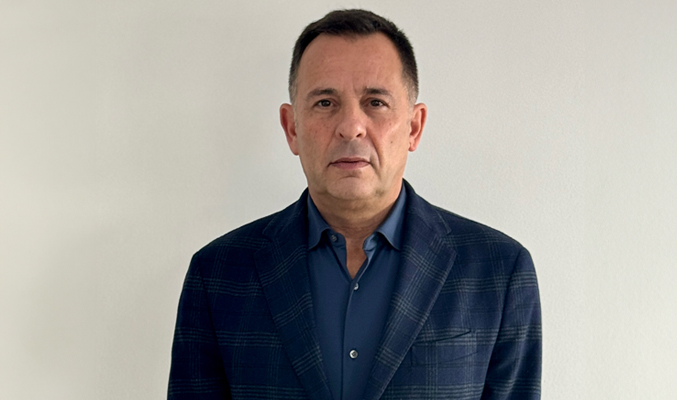‘Let the quality of your work be the measure of your success’
By Tony Sanchez

In our latest Women in Finance Interview, Tony Sanchez speaks to Estela Lopez, Case Manager at Fiduciam.
Since beginning her journey as a Case Manager at Fiduciam in July 2021, Estela has worked across multiple disciplines: credit underwriting, real estate, financial law and regulation, portfolio management, and sales and marketing, to name a few.
Fiduciam has provided an environment with a steep learning curve in which driven individuals – who may not necessarily have had previous financial experience can take responsibility from the start, gain exposure to numerous different areas and enhance their professional development.
What brought you into financial services?
As a chemistry graduate, I was initially drawn to the field of chemistry because of the impact I could have on the world; whether it was through contributing to environmental sustainability efforts or developing new technologies, drugs and therapies that could improve people’s quality of life.
However, as I progressed in my studies, I began to widen my interests beyond the field of chemistry. As a young woman looking for a career where I could make a positive contribution, the finance industry appeared particularly attractive.
By working in finance, I could help to identify new investment opportunities, manage risk and support economic growth, which encouraged me to apply and build upon my acquired skills in a business-focused environment.
Specifically, I became interested in the areas of risk management, financial modelling and market research.
I saw a clear connection between the quantitative skills I had developed through my undergraduate degree and the skills needed to analyse financial data and build financial models.
At the end of the day, whether you are developing an experimental investigation or constructing a model to determine the pattern in a set of data, your results will only be as good as your analytical capacity.
Furthermore, I was attracted to the collaborative and fast-paced nature of the finance industry, which offers a unique blend of intellectual challenge and real-world impact.
I saw the potential to leverage my problem-solving capacities and interpersonal skills to help businesses make informed decisions and manage risk more effectively, which when coupled with my interest in the financial world, led me to pursue a career in financial services.
What do you think makes a successful leader? And in particular women leaders?
I believe a successful leader is someone who can effectively guide and inspire their team towards a common goal.
Crucially, a leader must have the ability to recognise, acknowledge and communicate the individual strengths and weaknesses of its team members and utilise them to the team’s advantage.
By doing this, a leader can help to build confidence and motivate the team to take on new challenges, while encouraging trust and loyalty.
When a team member feels that their work is being acknowledged and adding value to the team, they are more likely to feel invested in the team’s success, ultimately maximising efficiency.
Addressing the team’s weaknesses, however, is just as important. A good leader must be able to identify and tackle the areas where team members may need additional support or development.
By recognising these and providing the team members with resources to aid improvement, a leader can help the team grow organically.
Although any good leader must possess the above skillset to be successful, when it comes to speaking out, it can be more challenging for women, who often face gender stereotypes and bias.
As such, perhaps the most crucial trait that women must possess to be a successful leader, is confidence.
The latter is essential to be able to assert their authority, inspire confidence and convey their message effectively in order to drive change.
What are the biggest barriers you have faced in your career in financial services?
One of the main barriers I have faced in my career in financial services is the steep learning curve required to acquire a solid understanding of the financial, accounting and economic principles that underpin the alternative lending industry.
As a STEM graduate, I did not have any formal background or training in these areas, which required a significant investment of time and effort “behind the scenes” to build my understanding of the basics, which include understanding financial statements, credit analysis, market trends and risk management.
If you could tell your younger self one thing you know about business now, what would it be?
If there is one piece of advice I could give my younger self about business, it would be the importance of confidence.
It is crucial to speak up and assert yourself when necessary whether you are dealing with stakeholders, clients, or colleagues.
As a young woman, people may underestimate your qualifications or expertise because of age and gender biases, assuming you lack experience or authority in making certain decisions.
This situation can be challenging, especially when the client is much older than you.
However, finding the right balance between assertiveness and respect is crucial to navigating such situations successfully.
What’s your own personal mantra?
My own personal mantra is “let the quality of your work be the measure of your success”.
You can never become friends with everyone, but you can earn their respect.
I believe that the key to success is being consistent in your work, putting in the extra hours when needed and being willing to take on new challenges.
By continuously producing high-quality work, you demonstrate your work ethic and prove that you are committed to excellence, which in turn will lead to repeat business, referrals and further opportunities for growth.
Your work speaks for itself.
What do you think is key for finding a successful work-life balance?
I strongly believe that the key to finding a successful work-life balance is setting realistic targets; these must be challenging but achievable, taking into account your abilities, experience and workload.
It can be easy to underestimate how long a task can take to complete and it is important not to be too hard on yourself.
It is important to take a step back and determine what to prioritise, otherwise it can lead to excessive stress which will impact both professional and personal life, resulting in burnout in the long run.
On the other hand, when targets are achievable, it is easier to maintain a sense of control and accomplishment in your work, which can positively impact your productivity and overall job satisfaction.
This ultimately translates to your personal life, as you are able to devote more time and energy to your relationships and hobbies.
What advice do you have for women aiming for leadership positions?
My advice for women who are building their careers is to invest in their knowledge, whether this is by obtaining the relevant certifications, attending industry events and conferences or simply keeping up with current affairs and financial publications.
This can not only increase professional credibility, which is particularly crucial for young women, but can help identify areas of interest and expertise, opening new opportunities for career growth and development.
By investing in knowledge, you can make yourself more valuable and better equipped to advance in your career, helping you establish yourself as an expert in the field.
As Benjamin Franklin once said, “An investment in knowledge pays the best interest”.
What do you think is holding women back?
I believe that women face several challenges in different contexts that hinder their professional progress, and there is no factor that is solely responsible for this.
Rather, it is a combination of factors that contribute to women still often being overlooked and underrepresented in leadership positions.
The underrepresentation of women in leadership positions can become a self-reinforcing cycle.
When women are not represented in leadership positions, it sends a message to other women in the organisation that leadership roles are not accessible to them, creating a lack of motivation to strive for those positions.
Additionally, it makes it harder for them to envision a clear path for career advancement and it can limit their access to important networks and resources, which are essential for career advancement and success.
This can create a sense of isolation and exclusion, further hindering their progress.
Another common factor is gender stereotyping; women are often depicted as less capable, assertive, and ambitious than men, instead being characterised as more emotional and easily influenced.
These stereotypes can limit opportunities for women and perpetuate unconscious bias.
Furthermore, the expectation for women to prioritise caregiving responsibilities can create a challenge for them in balancing work and family commitments and can ultimately affect their career advancement.
To break this cycle, it is essential to create a culture that values diversity and inclusion, actively works towards increasing representation of women in leadership positions and provides support and resources to enable women to succeed.
Do you think there is still a glass ceiling?
The progress that has been made to address the obstacles preventing women and other underrepresented groups from reaching their full potential in the workplace is undeniable.
However, I firmly believe that there is still more work to be done to break the glass ceiling.
The financial industry remains heavily male-dominated, particularly in leadership positions, which makes it challenging for minority groups to find role models and mentors who can offer guidance and relate to their struggles.
This can create a sense of exclusion and limit networking and growth opportunities.
The persistent pay gap further compounds these issues, making it difficult for underrepresented groups to feel valued at work, impacting morale and financial stability, and slowing their career progression.
I am very glad working at a company that tackles these issues head-on, with now 40% of our management being women, and salaries being set on firm performance metrics.
What are your thoughts on the Women in Finance Charter?
I believe that the Women in Finance Charter is a positive step towards achieving a more inclusive and equitable industry by promoting transparency and accountability and creating opportunities for women in the industry.
It holds the potential to boost opportunities for women in finance, particularly in leadership roles, and enhance the performance of financial firms.
However, I believe that signing the charter is just the first step; companies must follow through on their commitment to take concrete actions to promote diversity in the workforce and take accountability otherwise.
Some good initiatives include creating mentoring and sponsorship programs and addressing unconscious bias in the workplace.
How do we encourage more women into financial services?
I believe encouraging more women to enter financial services requires a comprehensive approach that engages not only companies, but also educational institutions and government agencies.
However, I believe one of the first steps should be to destigmatise the industry and change the perception that it is a “male industry” to encourage women into the sector.
This can be achieved by raising awareness of the career opportunities available within financial services, showcasing the contributions women make to the industry and highlighting their experiences.
Another key initiative is creating financial courses and programmes targeted at women, which dually promotes their professional development and increases their confidence.
Additionally, companies can play a role in encouraging women into the industry by promoting mentorship programmes and featuring women in leadership positions as role models.
By making a concerted effort, a more inclusive and welcoming environment can be fostered that will ultimately attract more skilled and diverse individuals to explore a career in financial services.
The gender pay gap is only second worst to the construction industry. What can organisations do to address this?
Organisations can take several measures to tackle the issue of gender pay disparity.
Some strategies may include implementing transparent pay structures, conducting thorough pay audits to ensure equal compensation for equal work and providing equal development, networking and mentorship opportunities.
Equally, organisations can contribute towards reducing the gender pay gap by raising awareness of unconscious bias and the challenges women face in the industry through their online platforms, including what actions can be taken to tackle these and the benefits that fostering a diverse and inclusive workplace would entail.
By taking these actions and promoting other companies to do so to as well, organisations can help to close the gender pay gap and create a more equitable workplace for all employees.










You must be logged in to post a comment.